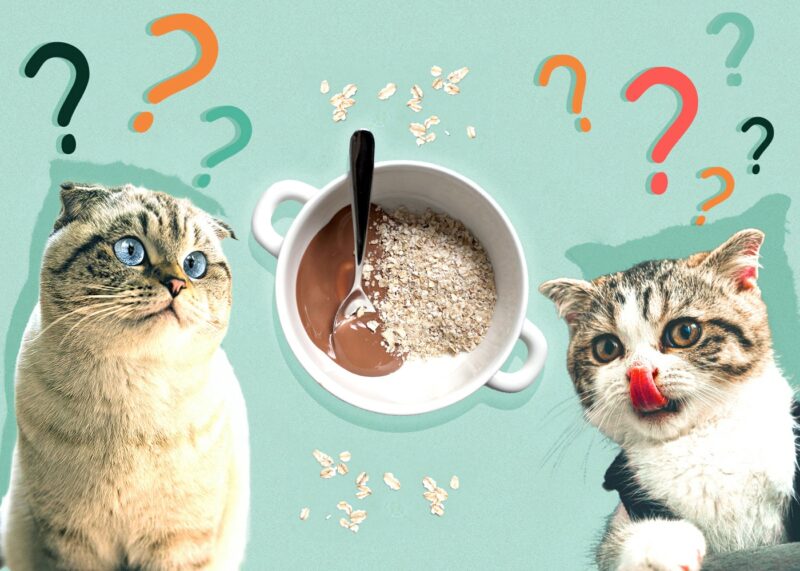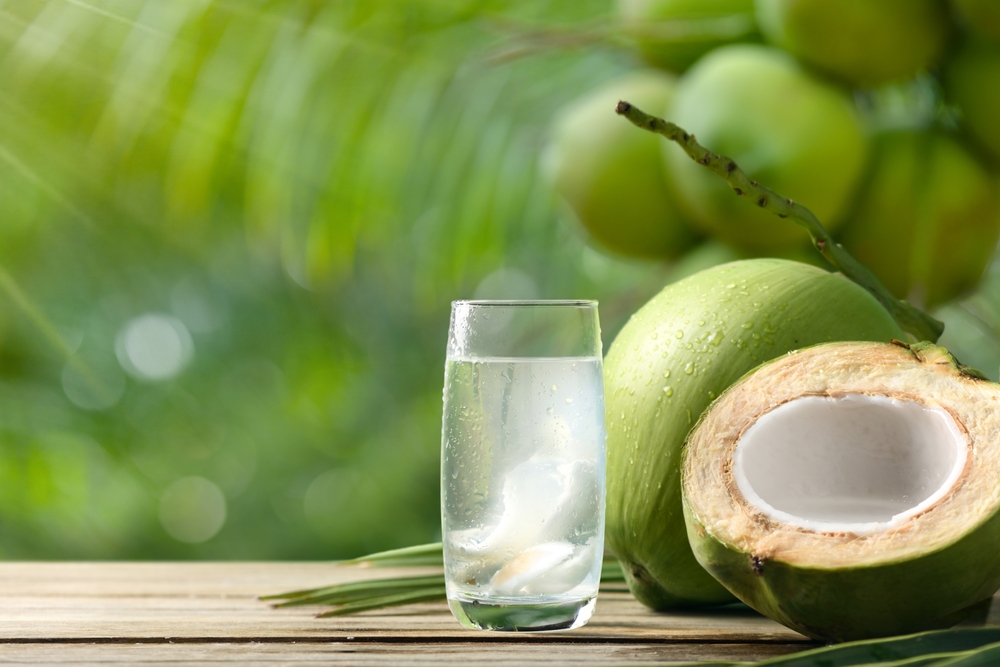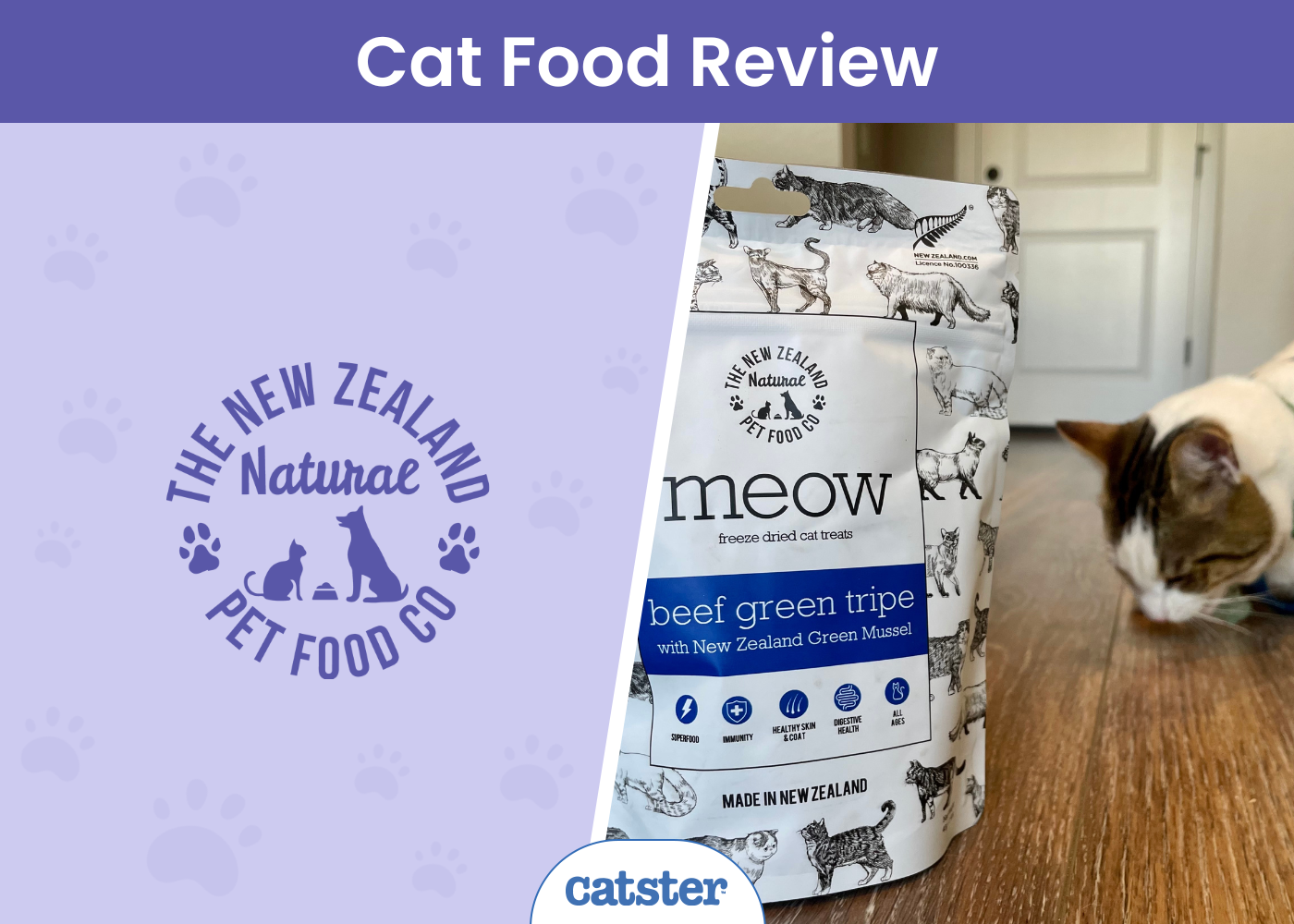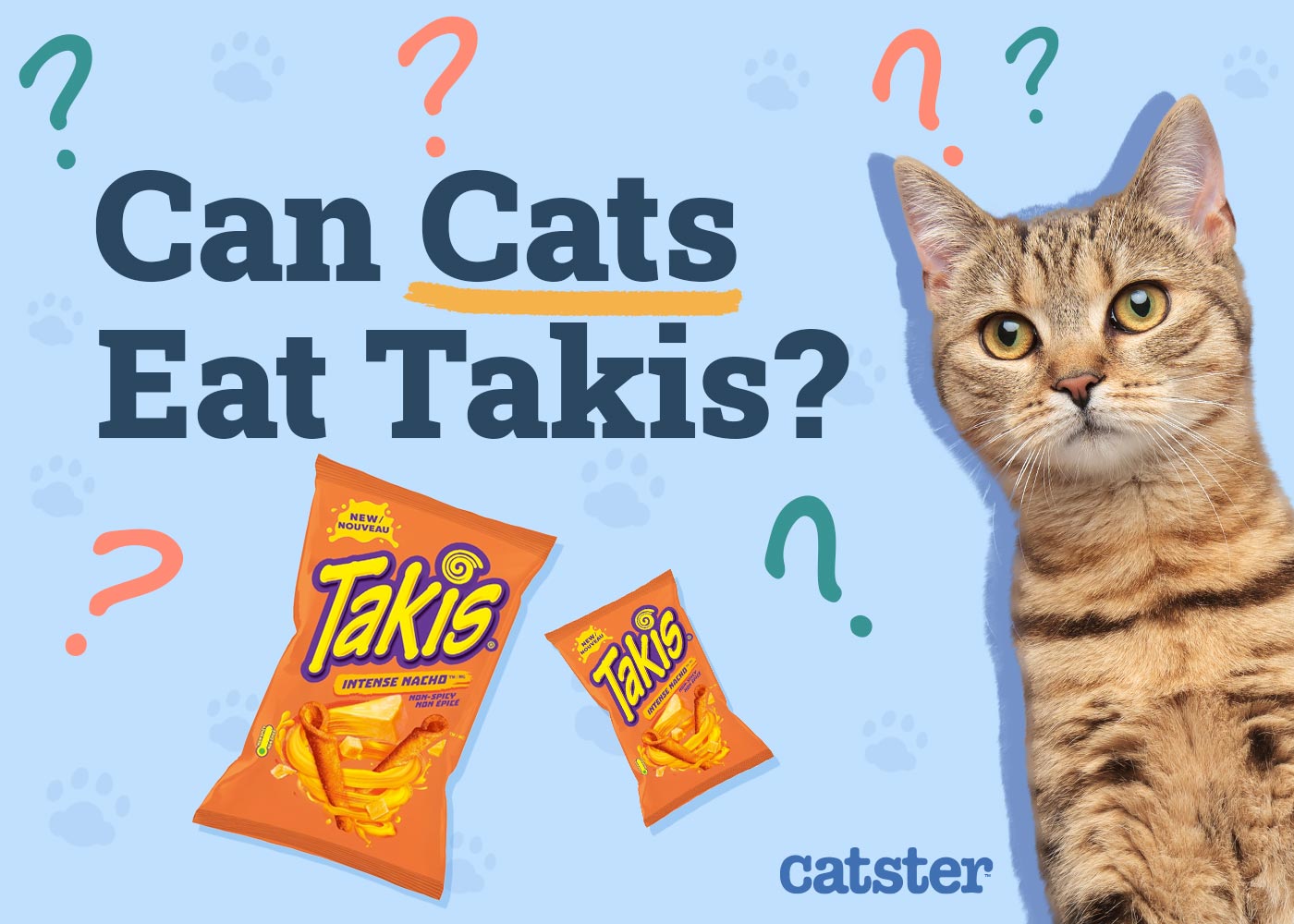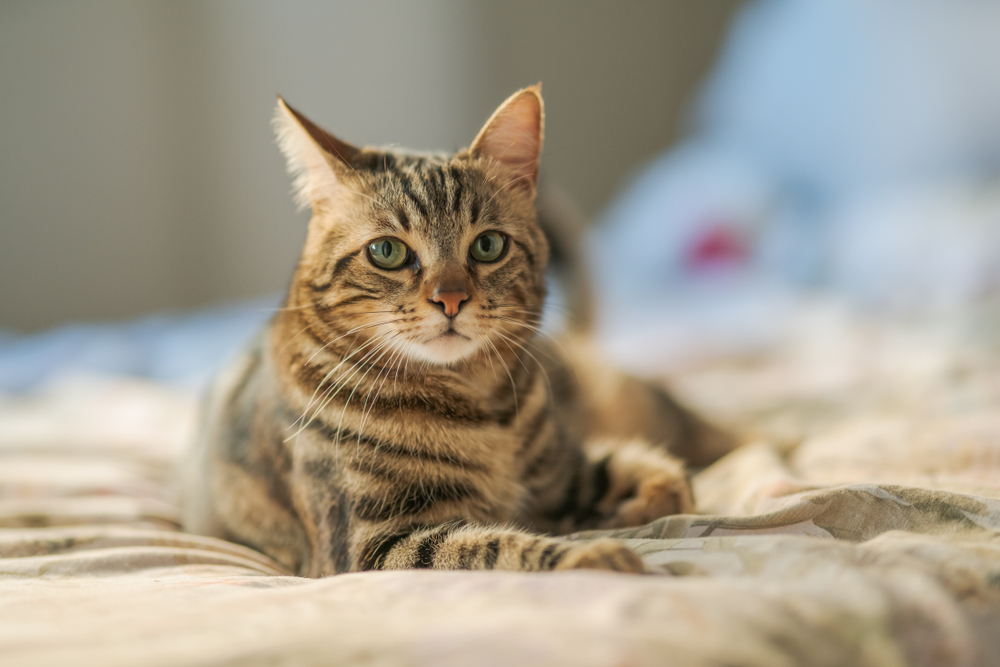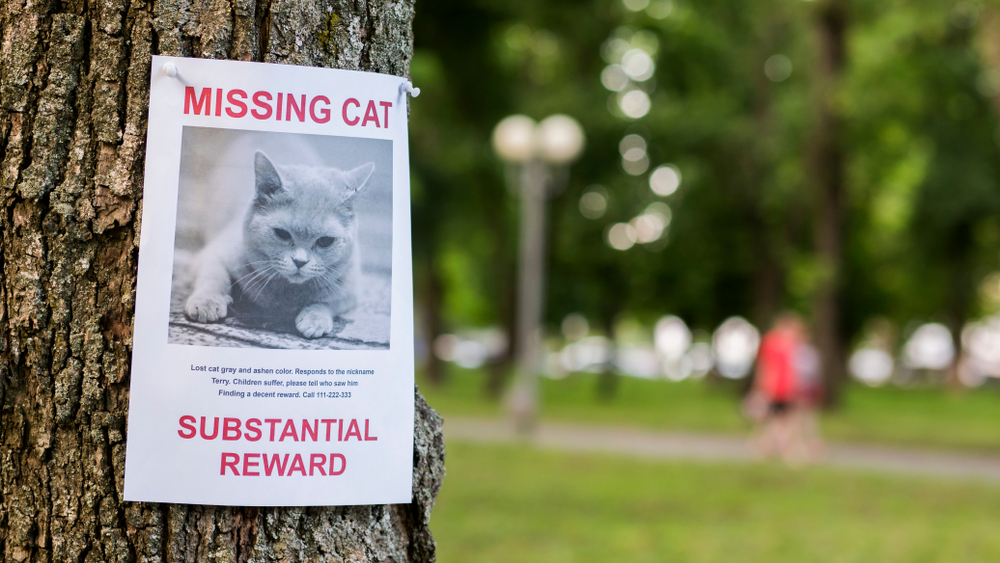Click to Skip Ahead
There are few staple breakfast foods that keep you satisfied and full of energy like oatmeal does. But just because it’s good for us doesn’t mean oatmeal is good for cats. So, can cats eat oatmeal? Oatmeal is technically safe for cats to eat because it doesn’t contain any toxins or harmful components that make cats sick. However, it’s not considered healthy for cats and therefore is best if not added to their diet intentionally. It’s not a natural part of a cat’s diet, and it’s unhealthy for cats to consume large amounts of carbohydrates.
So, before you fix your cat and yourself a bowl of breakfast oatmeal in the morning, let’s explore why you shouldn’t intentionally offer some to your cat.
Nutritional Benefits of Oatmeal
Oatmeal is mainly a carbohydrate source, so it’s not ideal for cats and by proxy, oatmeal doesn’t offer your cat any tangible nutritional benefits. Intrinsically, complex carbohydrates such as oatmeal aren’t good for cats. Cats don’t metabolize complex carbohydrates as efficiently as they metabolize animal protein and animal fats.
Over half of the nutritional composition of oatmeal is carbohydrates. When oatmeal is cooked, these carbohydrates break down, become softer, and absorb moisture. This is the reason why oatmeal increases in size when cooked.
The cooking process does increase oatmeal’s digestibility. However, it also reduces the already miniscule amount of protein oatmeal offers (in relation to a cat’s needs). Essentially, it offers your cat “filler” calories. The other benefits of oatmeal touted for human consumption do not necessarily apply to cats, as cats can obtain the same nutrients from other, more biologically appropriate food sources.
Oats contain more protein than other grains, such as rice and wheat. However, oats aren’t a complete protein for cats, as they lack taurine. Though oats contain fiber, it’s worth noting that fiber isn’t a strict requirement in a cat’s diet—there are no fiber requirements mentioned for cats based on nutritional guidelines set forth by regulatory authorities such as AAFCO and FEDIAF.
Though cats may benefit from the inclusion of some fiber in their diet, excessive fiber intake is nutritionally detrimental for a cat. In addition, for cats specifically, oatmeal isn’t considered a great fiber source.
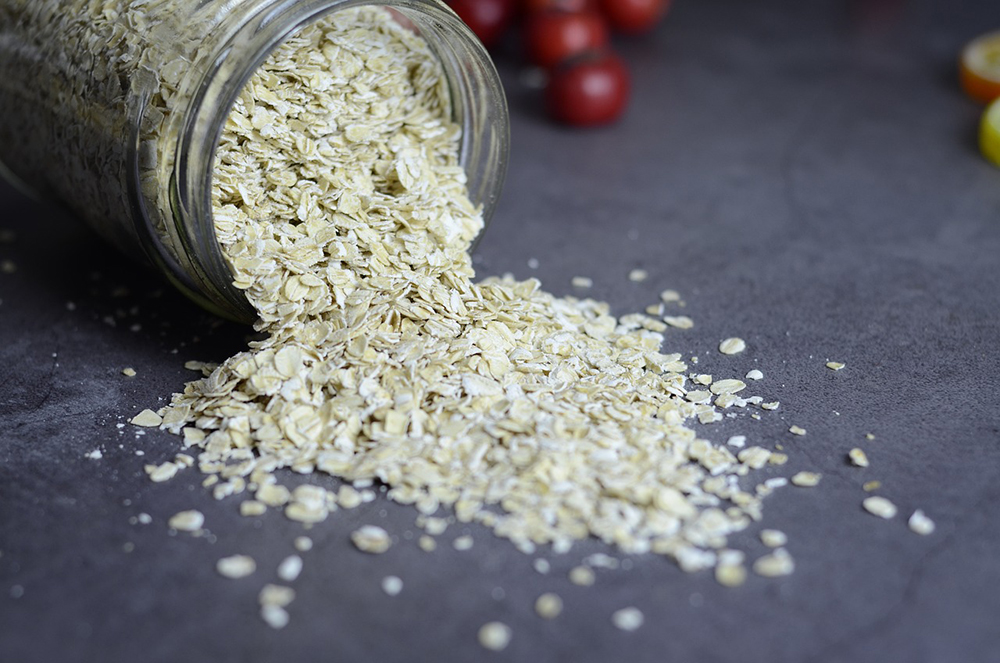
How Often Can Cats Eat Oatmeal?
Cats are obligate carnivores, so they require a lot of protein in their diet. They also need adequate amounts of fat because their bodies use protein and fat as energy sources. So, there’s very little need for carbohydrates in a cat’s diet.
With that being said, cats can safely eat oatmeal if it’s given to them every once in a while in very small, bite-sized morsels. However, if you try to give your cat oatmeal, there’s a good chance that your cat won’t enjoy it. Oatmeal tends to be more of an acquired taste, so some cats will enjoy it, while others won’t find it appealing at all.
There’s no need to force your cat to eat oatmeal. It’s not a crucial food in a cat’s diet, so if your cat doesn’t like it, you can definitely provide other species-appropriate snacks for them to enjoy. Cats will most likely prefer meat-based treats over carbohydrate-heavy treats, anyway.
A Cat’s Basic Dietary Requirements
In general, cats thrive on protein-heavy diets with adequate amounts of fat and very few carbohydrates.
1. Protein
Adult cats usually need a diet that consists of at least 26% protein. Studies suggest that cats maintain lean body mass when their diet contains at least 40% protein.
Some senior cats may need even more protein in their diet and should be fed food containing about 50% protein. However, cats with kidney issues will need lower amounts of protein. The best way to determine the appropriate amount of protein in a cat’s diet is to work with your veterinarian.
One of the most important reasons cats need to eat protein from animal meat is that they need an ample amount of taurine in their diet. Taurine is an essential amino acid found in high concentrations in animal meat and specifically, the organs (such as the heart).
Taurine deficiencies can lead to potentially fatal health conditions, such as feline taurine retinopathy or dilated cardiomyopathy (DCM).
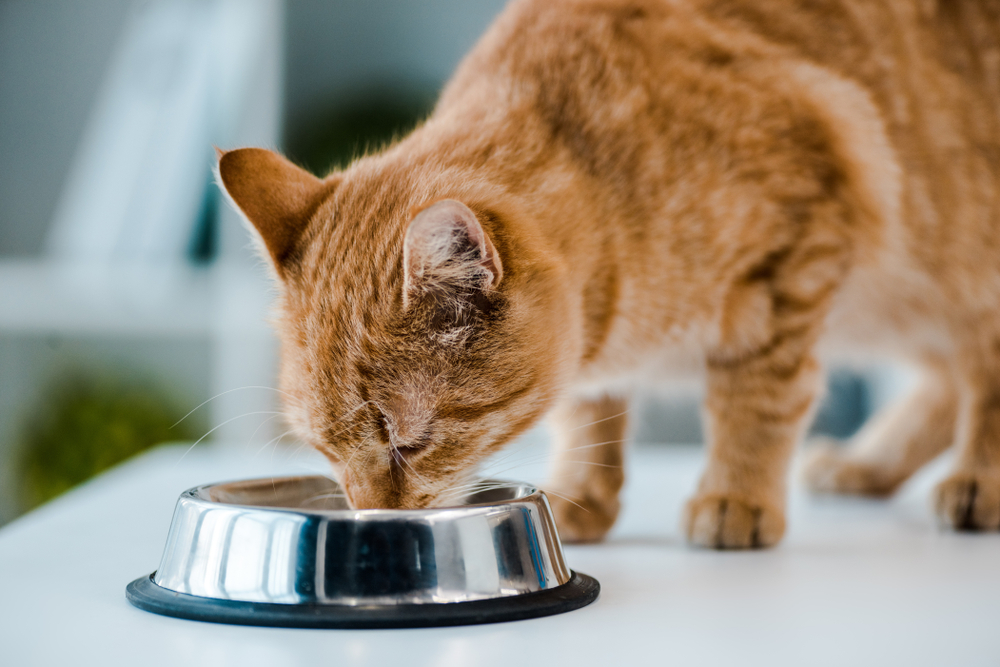
2. Fats
When it comes to fats, cats need diets containing a minimum of 9% fat. Many people may think that consuming too much fat isn’t good. However, cats actually need to eat a good amount of fat to stay healthy.
Since cats use fat as energy, low-fat diets can be detrimental to their overall health in the long run. Unless they have a specific condition, such as pancreatitis, they need to have at least 9% fat or more in their diet. Your vet can guide you in choosing the right ratio for your cat. Cats also need to consume omega fatty acids to maintain healthy skin, a healthy coat, and a strong immune system. Fats also help transport important nutrients across cell membranes within a cat’s body and help the body absorb fat-soluble vitamins, such as vitamins A, D, E, and K.
Fats are also better for cats when compared to carbohydrates because fat yields more water than carbohydrates do when it is processed by their bodies. In fact, fat holds more water than fat itself! 100 grams of fat can yield around 107 grams of metabolic water for your cat when it’s broken down by their bodies.
Not all fats are made equal though. Plant-based fats lack arachidonic acid, which is essential for cats. Perhaps not surprisingly, this specific fatty acid is found in animal tissue, further reinforcing the fact that cats are obligate carnivores.
3. Carbohydrates
Cats don’t need a lot of carbohydrates in their diet. So, outside of eating their usual cat food for main meals, they shouldn’t eat too many foods or treats containing a lot of carbohydrates.
Carbohydrates aren’t as filling for cats, so they can end up eating more and gaining weight. Therefore, it’s important to feed cats a regular diet that sticks to their daily nutritional needs. A well-balanced diet for cats can help them keep a healthy body weight and maintain their daily bodily functioning.
Carbohydrates like oatmeal can be nutritious for humans and sometimes dogs because they’re facultative carnivores and have adapted to eating carbs (do note that other forms of carbohydrates are still likely better for dogs as well). However, it’s not the best option for obligate carnivores like felines. Cats can easily become overweight and sick by consuming foods with a lot of carbohydrates.
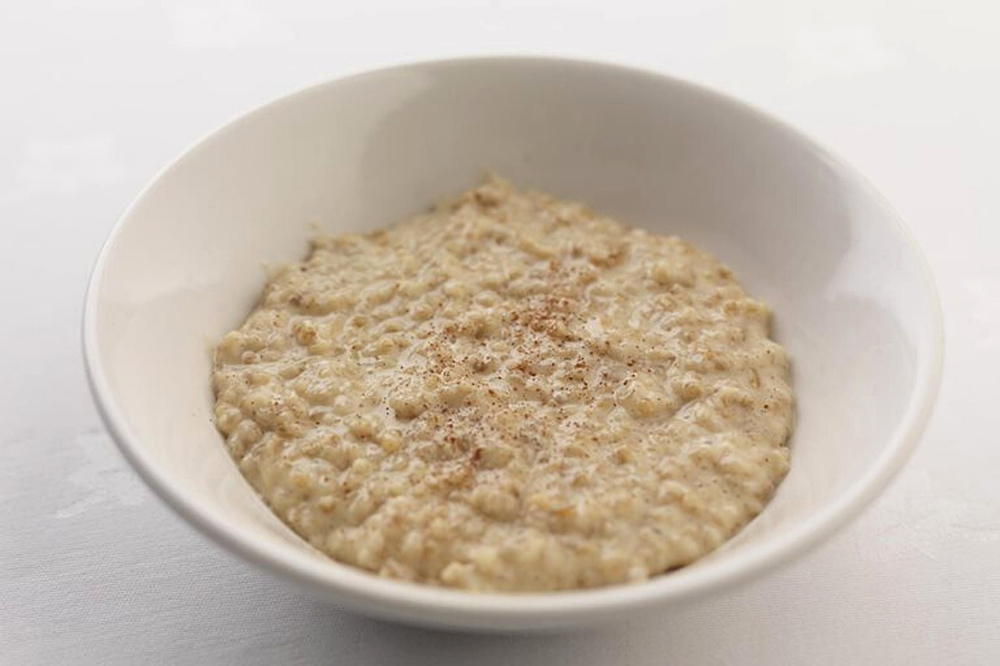
4. Essential Vitamins and Minerals
Cats must also regularly consume specific vitamins and minerals to stay healthy. Any sort of vitamin and mineral deficiencies can potentially lead to serious health conditions. The Association of American Feed Control Officials (AAFCO) has a set list of essential vitamins and minerals that all cat food should contain.
Perhaps not surprisingly, many of these are naturally found in animal products and byproducts; some are only found in animal meat.
Final Thoughts
Although cats can eat oatmeal, they will benefit from other treats that better fit their diets, such as chicken jerky. However, since it has no harmful properties in it, your cat can still have oatmeal if they enjoy the taste (which is admittedly rare). Nonetheless, it’s still not recommended for cats.
If you insist though, please make sure to only serve a small amount in order to prevent any weight gain, as this is not an ideal food for an obligate carnivore.
See Also:
Featured Image Credit: martin_hetto, Pixabay


